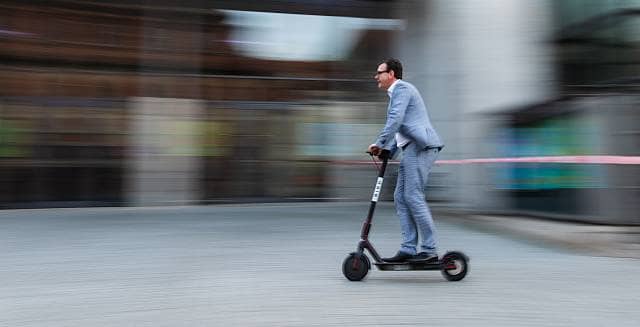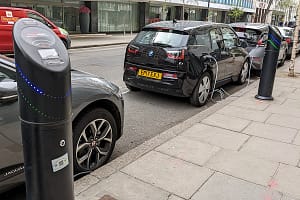London traffic and air pollution levels have rocketed back up in the past few months and the glimpse of a cleaner, quieter, less congested future that many of us enjoyed during lockdown has sadly evaporated.
If anything, London’s congestion, particularly around the urban villages and suburbs where most people live, is getting worse. Congestion is almost a fifth higher than it was on average last year, outside the central congestion charging zone, according to figures out this week.
Since two million people – including more than 400,000 children – across the capital are living in areas that exceed legal limits for air pollution, that is an outcome that no one will welcome.
The problem is that our reliance on cars, particularly in a socially distant society, is more ingrained and unshakeable in London than first thought. For the last 20 years, public transport has been consistently improving in this city. But more recently that has stalled, with major projects like the Elizabeth Line running over budget and over time, road works causing huge disruption to buses and overground train connections that have not been fit for purpose. And that is before we even consider how the city’s transport system will be funded, with fares and passengers at less than half ‘normal’ levels.
While public transport remains the backbone of sustainable mobility, e-scooters can be a radical solution to challenges we are facing right now, and in normal times can be a part of the first/last mile solution.
At the start of September, the first of Voi’s e-scooters arrived in the West Midlands, Northampton and Coventry. Cambridge and Peterborough will also soon be hosts to these electric vehicles, as well as e-bikes.
Tens of thousands of people across the West Midlands and Northampton have now used e-scooters to get to and from work, and travel around local streets, covering a staggering 95,000km+ in just a matter of weeks. Over the course of just these three year-long trials, we’re predicting saving up to 665 tonnes of CO2 thanks to our environmentally friendly and carbon neutral e-scooters which now have a five-year lifespan.
These regions, like London, are making long-term investments in transport infrastructure. But the capital can perhaps come closer than all of these cities to potentially eliminating private cars for good. This week MPs called on the government to legalise e-scooters, saying that they could offer a low-cost and environmentally friendly alternative to cars. Although they also called for robust enforcement measures to be put in place to make sure riders don’t drive on pavements, which everyone agrees is “dangerous and anti-social.”
London needs to create jobs for an army of young people that are out of work and e-scooter trials is one way to do just this. This low-carbon mode of transport can take the pressure off public transport and connect areas of the city that are tricky to navigate between.
Any new form of transport, indeed any new form of innovation can take time to bed in. In introducing e-scooters to the capital we at least have the benefit of learning from the experiences of Germany, Sweden, France, Switzerland and Italy. We need to be clear on the behaviour that is permissible – for example e-scooters are illegal to use on pavements – but we can also use the technology to impose restrictions on shared e-scooters, in a way that it is not possible to restrict the private, and still illegal, version.
London’s transport problems have become more pronounced during the last six months. But one thing is certain: we need change and it can’t come soon enough. Empty buses, empty trains and streets full of cycles are a vision that some have celebrated, but it is not a long-term solution to the capital’s transport woes. If we are to make this great city buzz again, we need to use all the tools at our disposal.
E-scooters can help people, commuters, residents and visitors get back into the centre of town or help key workers get to the hospitals, supermarkets and services where they are needed. We’re ready and keen to work with Transport for London to set up trials across the London boroughs and work closely with other transport providers to make the city better connected, even with reduced capacity.
E-scooters may not be the silver bullet to solving London’s transport problem, but they can be the bridge between congestion and chaos — and the cleaner, quieter future that we glimpsed in lockdown. This is a future that London deserves, and there’s no time to lose.






Leave a Comment